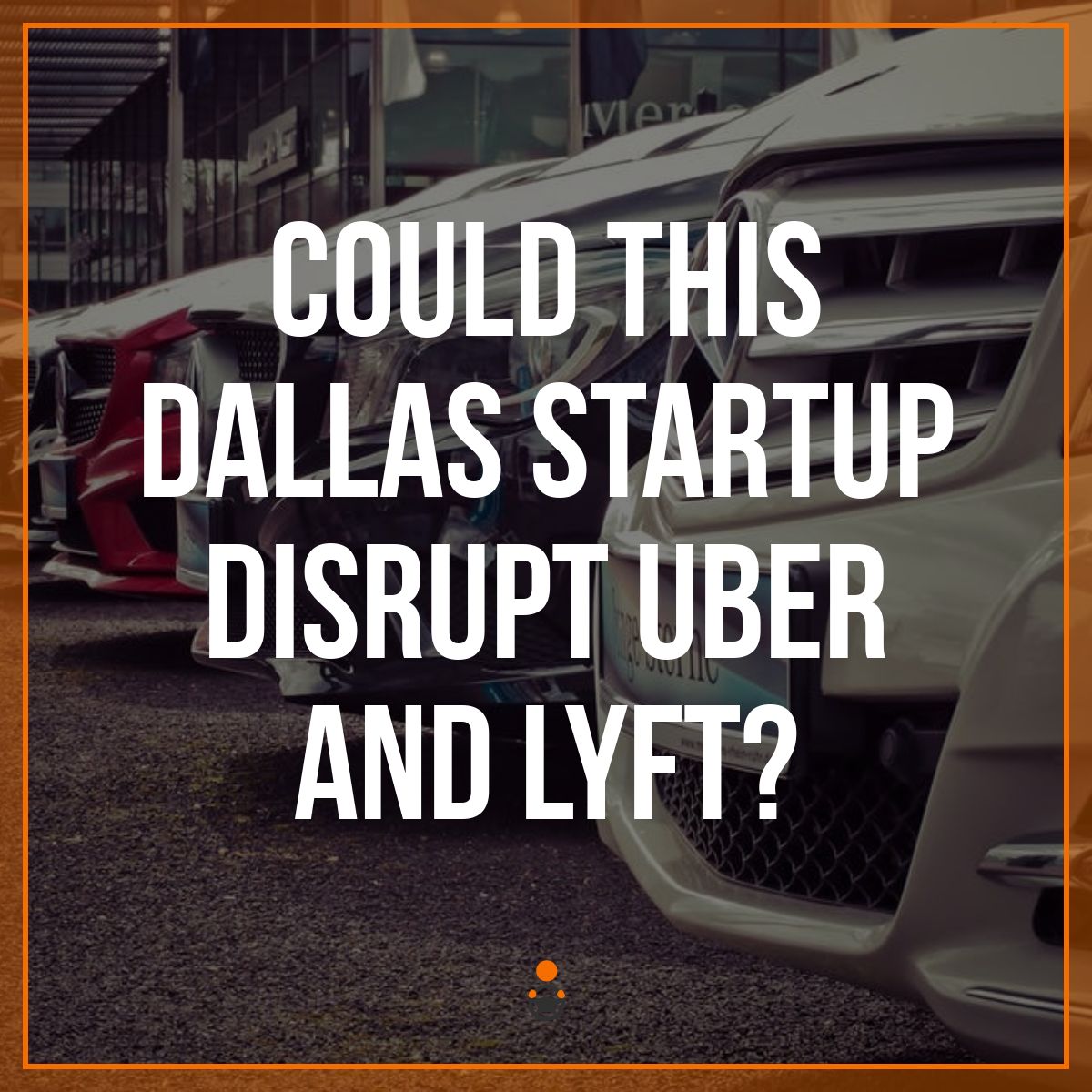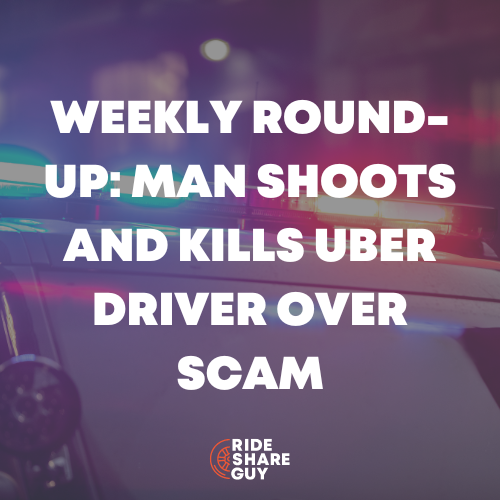In this week’s round up, senior RSG contributor John Ince covers a bombshell article on Uber safety from CNN. That, plus the demise of a meal-kit/delivery service, a new rideshare company out of Texas, and Uber’s rewards program – for riders.

Stressed out and at risk: Inside Uber’s special investigations unit [CNN]
Sum and Substance: The internal investigators tasked with keeping Uber safe were overworked, underpaid and at times emotionally traumatized as they struggled under the burden of nearly 1,200 cases every week, a confidential internal memo obtained by CNN says.
The 26-page memo, prepared by an outside risk management consultant, says that as recently as May last year, Uber’s Special Investigations Unit was handling hundreds of cases every week. The team — which was made up of 60 investigators and 15 team leaders at the time — was tasked with handling the most severe incidents reported to the company in North America, including verbal threats, physical and sexual assault, rape, theft and serious traffic accidents.
Uber commissioned the memo as part of its “broader efforts to stand up a best-in-class, specialized investigations team,” a company spokesperson told CNN. …
Investigators experienced ‘profound stress’
Uber has repeatedly over the past year said that safety is its number one priority. But the company is still reckoning with the problems that have come along with its aggressive push to scale globally. The memo notes that, as of May, most of the SIU’s investigators were in their 20s and 30s. According to a CNN analysis of former and current employees, one Uber investigator went from being a Starbucks barista to handling calls from victims. Another was a manager at Chipotle before he became an investigator…
The memo cites a “serious level of stress and anxiety of team members,” and notes that six members of the unit were “experiencing profound stress requiring clinical care.” “The issue of untreated depression … because of a massive caseload and the concern that an investigator must acknowledge that they are not coping well is not only real but increasing,” the memo said.
… The memo cites the financial and reputational damage that severe incidents can have on the company, which is slated to go public in 2019, noting that trust in Uber “is eroded by periodic, but serious allegations of inappropriate or illegal conduct, notably by drivers and occasionally by hostile passengers.” It was shared with select people at Uber, one former manager told CNN. A separate CNN investigation in April 2018, found evidence of 103 drivers accused of sexual assault or abuse by passengers since 2014, based on publicly available data including police reports.
… For more than a year, CNN has been pushing Uber to reveal its data on allegations of sexual abuse and assault on its platform, but Uber has said the numbers will not be ready until sometime in 2019.
The former manager said Uber has always had numbers and keeps track of complaints in real time, adding that the consultant’s memo was initially “shelved” at Uber. Another former manager told CNN: “It’s a technology company built on data. The numbers are known.”
… The company classifies complaints based on severity levels. The SIU handles the highest levels: Level 3’s, or L3’s as they are referred to internally, include physical assaults and crashes. Level 4’s, known as L4’s internally, include rape, sexual assaults, and any deaths on the platform, according to sources.The memo also outlines the risks to Uber’s bottom line should the SIU’s caseload become public…
… The company has repeatedly declined to specify when it plans to release its data on sexual assaults and other incidents that occur on its platform, other than to say it will be sometime in 2019.
“When it comes to safety, we believe getting the data right is critically important and the foundation of future improvement,” Anderson said in a statement. “That’s why we are working with experts to audit our safety incident data, so that it can be responsibly released, as we have committed publicly to doing this year.”
My Take: 1200 investigations per week. Let me repeat that. Uber investigates 1200 allegations of impropriety from ratings from sexual assault to altercations per week. Okay, Uber gives a lot of rides, but 1200/week is still a lot.
Never before have we had such an in-depth look inside the operations of a company that routinely spouts forth its mantra, “Safety is our top priority” as if they really mean it. Maybe they do, but with this number of investigations ongoing, how can any passenger feel safe inside the confines of a strangers car, knowing absolutely nothing about the person who is sitting a few feet away from them with hands on the drivers wheel? To say nothing of the people who investigate these allegations. I’m curious to see if Uber releases any additional data to clarify the findings from this article.
Munchery Is the Latest Meal Delivery Service to Go Bust [Eater.com]
Sum and Substance: Yet another Silicon Valley-backed meal delivery service has gone the way of the dodo: After nine years in business and number of radical concept changes, Munchery is no more.
In an email to customers yesterday, the meal delivery company announced that it was ceasing operations immediately. Last May, Munchery laid off around 250 of its workers — approximately 30 percent of its workforce at the time — and folded its operations in Los Angeles, New York, and Seattle, leaving San Francisco as the only city where it offered meal delivery…
Originally launching as a meal delivery service, Munchery also tested out recipe kits, as well as $9 per month subscription deals. At one point, the company even experimented with a pop-up in a San Francisco BART station with grab-and-go dishes geared at commuters…
Munchery is the latest in a long line of food delivery start-ups that didn’t pan out, despite promising kitchen talent and big-name backers. Within the last few years, similar prepared meal services Sprig, Maple, Spoonrocket, and Bento all folded, while meal kit companies Dinand Chef’d have met similar fates. On a brighter note, a few of the big players in the recipe kit game, including Blue Apron and Hello Fresh, are managing to stay afloat thanks, in part, to new deals with grocery stores.
My Take: Is this a precursor to what might happen in the ridesharing business? Nobody knows for sure. But this much we do know: if you don’t have a sustainable business model, you can’t sustain operations indefinitely. Eventually gravity catches up with you.
Eventually the profitability numbers have to start trending positive. Silicon Valley’s game is starting to get exposed for what it is – a sham. Investors tell company’s founders to grow like crazy, even if you’re losing money. With growth as their calling card, the next round of financing brings early investors an easy gain – if they can find some exit.
With secondary markets, acquisitions and private placements working overtime, many investors get out with huge gains – (like Uber’s Softbank deal), and the company never shows a profit. Unfortunately Munchery found no easy exit – and this then was their sad demise.
This Dallas startup just hauled in $14.5 million to disrupt Uber, Lyft [Dallas News]
Sum and Substance: A Dallas ridesharing startup thinks it has the formula — and now the funding — to disrupt the fast-growing on-demand market controlled by the likes of Uber and Lyft.
With a members-only subscription model, Alto will use $14.5 million in funding to scale up a service that its founders say puts safety first. Its main backers are Road Ventures, a European fund that invests in the transportation sector, and Frog Ventures, the venture arm of global design firm Frog.
Alto’s business model differs from traditional ridesharing companies. The firm employs its drivers and manages a dedicated fleet of SUVs. It also gives more control to its customers. For example, Alto members use an app to control the in-car experience, from music to climate. Frog Ventures designed the app and in-car experience…
Each Alto driver is interviewed, fingerprint- and background-checked and drug-tested. Additionally, drivers go through rigorous training, which includes a defensive driving course, customer service training and in-car, on-the-job training. Additionally, each new driver has a supervisor shadowing them on rides with real customers before becoming an active driver.
My Take: Another week, another Uber/Lyft killer. Why so many entrepreneurs and investors want to get in on this money-losing space is beyond me. Each one seems to have some new wrinkle that’s going to set them apart.
Alto’s innovation is about safety and hospitality. Safety? I suppose, it might be a selling point, especially given the data that’s coming out about Uber. But the hospitality angle seems suspect. How important is it to customers to be able to control the music they listen to? I don’t know about you, but I already give my passenger that option.
Now, here’s something – they treat drivers as employees. That might be a difference maker, if they offer drivers insurance, unemployment, etc. Then again, kind of sounds like being a taxi driver to me. What does it sound like to you?
Uber Rewards rolled out to more cities and we aren’t that impressed [Mashable]
Sum and Substance: On my way home from the gym Tuesday evening, I was pleasantly surprised to see an invite to join Uber Rewards on the ride-hailing app.
I’m in San Francisco and the loyalty program hadn’t made it there yet — or so I thought. As of this week, the program that offers perks and rewards based on the number of Uber rides taken expanded with a long list of new areas. … Based on my past six months of ride-hailing, I qualified for gold status. I felt something like a sense of pride that I wasn’t relegated to lowly blue, the starter status. Then I realized it meant I’d simply spent enough money on Uber to qualify. Funny how they get you…
After a quick look at the perks, it became apparent that, yes, you do receive $5 credit for every 500 points but only after spending a lot of money on the car service. You receive one point for every dollar spent on Uber Pool rides and Uber Eats orders. You get two points for ordering an UberX, UberXL, Select, or WAV ride, and three points for ordering Black and Black SUV rides.
Several noted that the rewards were fairly stingy in an attempt to cultivate loyalty away from competitor app, Lyft. Lyft’s loyalty program — also announced in November — has yet to make its way to riders yet. …
My Take: Why am I not excited about the prospect of earning $5 for every $500 I spend on Uber? Nevertheless, people are signing on. Seems like more sizzle than steak to me.
Readers, what do you think of this week’s round up?
-John @ RSG




